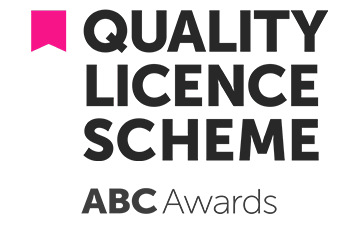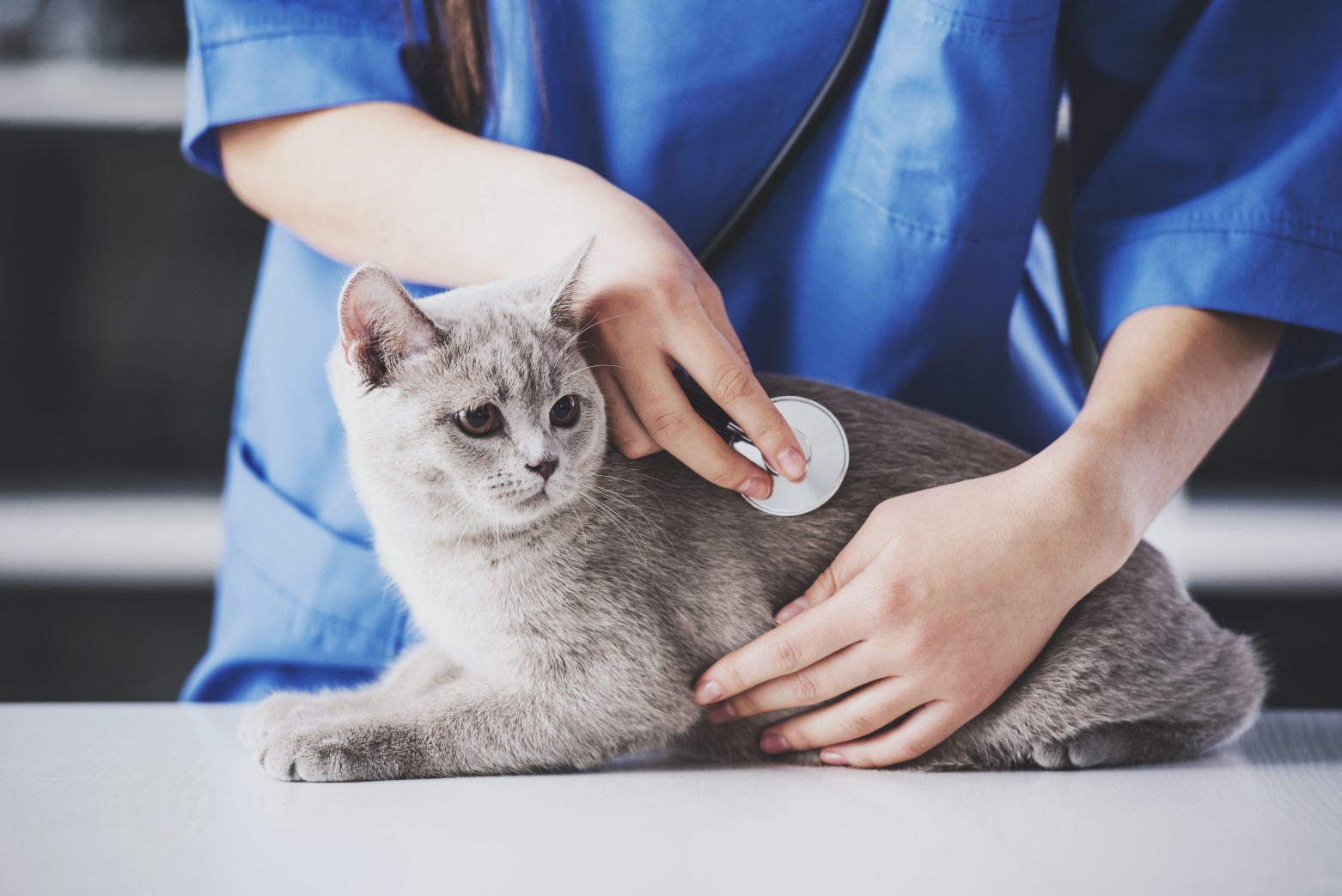FLASH SALE - 75% OFF All Courses
Use Discount Code: SA75 at checkout
SALE
ENDS:
Use Discount Code: SA75 at checkout
ENDS:
 Veterinary Support Assistant Diploma
Veterinary Support Assistant Diploma
Certified
Certified

Certified
Certified
This course is ideal for anyone assisting in a veterinary practice part-time or at the weekend, if you are considering working towards a career in a veterinary practice, or for anyone caring for ill and recovering animals at home.
Syllabus
Lesson 1: Welcome To the Course and Preparing for Employment
The subjects covered in this unit are:
- Introduction and course structure
- Benefits of this course and getting the most out of this course
- Veterinary Nurses and Nursing Assistants
- Preparing for employment
Lesson 2: Veterinary Medical Terminology
The subjects covered in this unit are:
- Veterinary words in easy bites
- Abbreviations and Acronyms
- Glossary of veterinary terms
Lesson 3: Basic Small Animal Anatomy and Physiology Part One
The subjects covered in this unit are:
- Cardiovascular system
- Major body cavities
- Skeletal structure
- Tissue structure and shape
Lesson 4: Basic Small Animal Anatomy and Physiology Part Two
The subjects covered in this unit are:
- Digestive and excretory systems
- Respiratory systems
- Endocrine glands
- Nervous system
Lesson 5: Handling Animals
The subjects covered in this unit are:
- Approaching an animal
- Typical restraints and handling equipment
- Behaviour
- Correct dog and cat handling methods
- Exotic handling
Lesson 6: Animal Diet and Nutrition
The subjects covered in this unit are:
- Importance of nutrition
- Types of food
- Nutrients
- Stages of life
- Nutritional support
Lesson 7: Animal Disease Part One
The subjects covered in this unit are:
- Cancer
- Heart disease
- Liver disease
- Kidney disease
Lesson 8: Animal Disease Part Two
The subjects covered in this unit are:
- Skeletal diseases
- Skin diseases and parasites
- Infectious diseases
- Other common illnesses
Lesson 9: Small Animal Emergency Nursing Part One
The subjects covered in this unit are:
- Aims
- Assessment
- Animal first aid kit
- ABC and CPR
- Handling a first aid patient
- Shock
Lesson 10: Small Animal Emergency Nursing Part Two
The subjects covered in this unit are:
- Fractures
- Bites and stings
- Wounds and burns
- Poisoning and fitting
- Diarrhoea and vomiting
- Hyperthermia and Hypothermia
Lesson 11: Infection Control
The subjects covered in this unit are:
- Importance of infection control
- Personal protective equipment
- Cleaning and Disinfection
- Sterilisation
- Hand Hygiene
- Isolation of an infecious animal
- Waste
Lesson 12: Diagnostic Tests Used by Vets
The subjects covered in this unit are:
- Radiography
- Ultrasound
- Radiography or ultrasound?
- MRI scanning in animals
- Blood Tests
- Urine Tests
Lesson 13: Care of Ill Animals
The subjects covered in this unit are:
- Monitoring
- Temperature, pulse and respiration
- Basic care of inpatients
- How do vets give animals medicine?
- Administering oral, ear and eye medication
- How vets manage fluid levels
Lesson 14: Operation Care
The subjects covered in this unit are:
- Veterinary anaesthesia
- Common veterinary surgical procedures
- Schedule 3 Procedures
- Sterile Field
- Surgical instruments
- Pre-op preparation
- Post-op care
Lesson 15: Euthanasia
The subjects covered in this unit are:
- Reasons for euthanasia
- Making the decision
- Euthanasia process
- Euthanasia of exotic pets
- Signs of a dying animal
- Signs of death
- Burial and cremation
- The animals left behind
Lesson 16: Safety and Welfare
The subjects covered in this unit are:
- Health and Safety laws and regulations
- Hazards
- Signs
- Zoonosis
- Safety tips
- Animal rescue and welfare organisations
- A veterinary nurse's code of conduct
Lesson 1: Welcome To the Course and Preparing for Employment
The subjects covered in this unit are:
- Introduction and course structure
- Benefits of this course and getting the most out of this course
- Veterinary Nurses and Nursing Assistants
- Preparing for employment
Lesson 2: Veterinary Medical Terminology
The subjects covered in this unit are:
- Veterinary words in easy bites
- Abbreviations and Acronyms
- Glossary of veterinary terms
Lesson 3: Basic Small Animal Anatomy and Physiology Part One
The subjects covered in this unit are:
- Cardiovascular system
- Major body cavities
- Skeletal structure
- Tissue structure and shape
Lesson 4: Basic Small Animal Anatomy and Physiology Part Two
The subjects covered in this unit are:
- Digestive and excretory systems
- Respiratory systems
- Endocrine glands
- Nervous system
Lesson 5: Handling Animals
The subjects covered in this unit are:
- Approaching an animal
- Typical restraints and handling equipment
- Behaviour
- Correct dog and cat handling methods
- Exotic handling
Lesson 6: Animal Diet and Nutrition
The subjects covered in this unit are:
- Importance of nutrition
- Types of food
- Nutrients
- Stages of life
- Nutritional support
Lesson 7: Animal Disease Part One
The subjects covered in this unit are:
- Cancer
- Heart disease
- Liver disease
- Kidney disease
Lesson 8: Animal Disease Part Two
The subjects covered in this unit are:
- Skeletal diseases
- Skin diseases and parasites
- Infectious diseases
- Other common illnesses
Lesson 9: Small Animal Emergency Nursing Part One
The subjects covered in this unit are:
- Aims
- Assessment
- Animal first aid kit
- ABC and CPR
- Handling a first aid patient
- Shock
Lesson 10: Small Animal Emergency Nursing Part Two
The subjects covered in this unit are:
- Fractures
- Bites and stings
- Wounds and burns
- Poisoning and fitting
- Diarrhoea and vomiting
- Hyperthermia and Hypothermia
Lesson 11: Infection Control
The subjects covered in this unit are:
- Importance of infection control
- Personal protective equipment
- Cleaning and Disinfection
- Sterilisation
- Hand Hygiene
- Isolation of an infecious animal
- Waste
Lesson 12: Diagnostic Tests Used by Vets
The subjects covered in this unit are:
- Radiography
- Ultrasound
- Radiography or ultrasound?
- MRI scanning in animals
- Blood Tests
- Urine Tests
Lesson 13: Care of Ill Animals
The subjects covered in this unit are:
- Monitoring
- Temperature, pulse and respiration
- Basic care of inpatients
- How do vets give animals medicine?
- Administering oral, ear and eye medication
- How vets manage fluid levels
Lesson 14: Operation Care
The subjects covered in this unit are:
- Veterinary anaesthesia
- Common veterinary surgical procedures
- Schedule 3 Procedures
- Sterile Field
- Surgical instruments
- Pre-op preparation
- Post-op care
Lesson 15: Euthanasia
The subjects covered in this unit are:
- Reasons for euthanasia
- Making the decision
- Euthanasia process
- Euthanasia of exotic pets
- Signs of a dying animal
- Signs of death
- Burial and cremation
- The animals left behind
Lesson 16: Safety and Welfare
The subjects covered in this unit are:
- Health and Safety laws and regulations
- Hazards
- Signs
- Zoonosis
- Safety tips
- Animal rescue and welfare organisations
- A veterinary nurse's code of conduct
FLASH SALE
75% OFF All Courses
Use Discount Code: SA75 at checkout
FLASH SALE
75% OFF
All Courses
Use Discount Code:
SA75
at checkout
Accreditation
This course has been accredited by Online Academies. On successful completion of this course you will be able to download or print off a PDF of your Online Academies Certificate (please note: you will also be given the opportunity to have a hard copy of the certificate printed off and posted out to you for a small additional charge). If you would like to view a sample of the certificate, please click here.

Online Academy work with Quality Licence Scheme (Quality Licence Scheme). The Quality Licence Scheme is part of the Skills and Education Group, a charitable organisation that unites education and skills-orientated organisations that share similar values and objectives. With more than 100 years of collective experience, the Skills and Education Group’s strategic partnerships create opportunities to inform, influence and represent the wider education and skills sector.
Assessment
At the conclusion of each module there is a multiple choice question assessment. This will help you remember the main points of the lesson and act as a check that you have retained the essential knowledge and understanding of that particular section. The results can be seen instantaneously and you can correct wrong answers. When the result is satisfactory you can progress to the next module.
Course Outcomes
Once you have successfully completed all the modules for your course you will be awarded:
A Diploma issued by Online Academies
 Newsletter
Newsletter
Be the first to get news and exclusive deals



